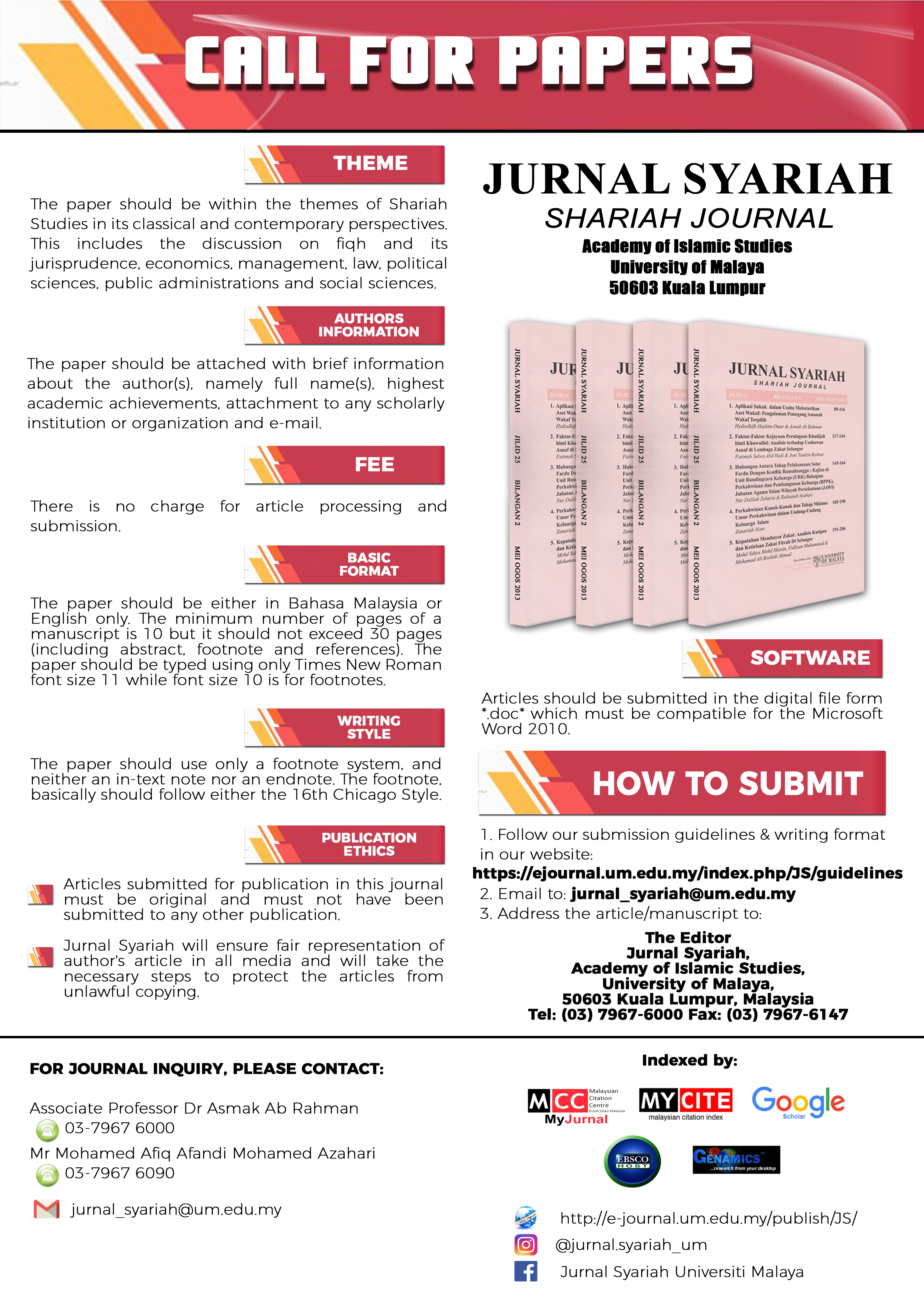ASPEK-ASPEK PEMIKIRAN KRITIS DALAM AL-QAWA'ID AL-FIQHIYYAH
Keywords:
Islam, Islamic thought, critical thinking, Islamic law, Islamic studiesAbstract
The existence of the set of rules in the Islamic tradition of knowledge known as al-qawa’id al-fiqhiyyah (legal maxims) prove that efforts were made by the prominent Islamic scholars to compile legal maxims as a guideline for Muslims to solve legal issues that arose in society over the centuries. By providing such legal maxims, it also proves that their success in synthesizing the element of syara' (Islamic law) is based on revealed knowledge with the rational element based on the human mind in an integrated manner. The emphasis given by Muslim jurists on certain elements of critical thinking, such as skill of analysis, objectivity in thinking, pragmatic, proactive, unbiased and other elements of critical thinking in forming the legal maxims, reflect their prominence and suitability to serve as guidelines in solving problems that arise in human society throughout the ages. Thus, this article attempts to analyse the extent that these skills of critical thinking have been applied in al-qawa’id al-fiqhiyyah, particularly in the process of extracting hukm in ijtihad activity to meet the needs of modern society. This will prove that the process of ijtihad has a close relation with critical thinking. This article concludes that critical thinking has been applied in forming legal maxims as analysed in five fundamental legal maxims.
Downloads
Downloads
Published
How to Cite
Issue
Section
License

This work is licensed under a Creative Commons Attribution-NonCommercial 4.0 International License.
COPYRIGHT: All rights reserved. Not allowed to be reproduced any part of articles and contents of this journal in any form or by any way, whether electronic, mechanical, photocopying, recording or otherwise without permission in writing from the Chief Editor, Jurnal Syariah.



















